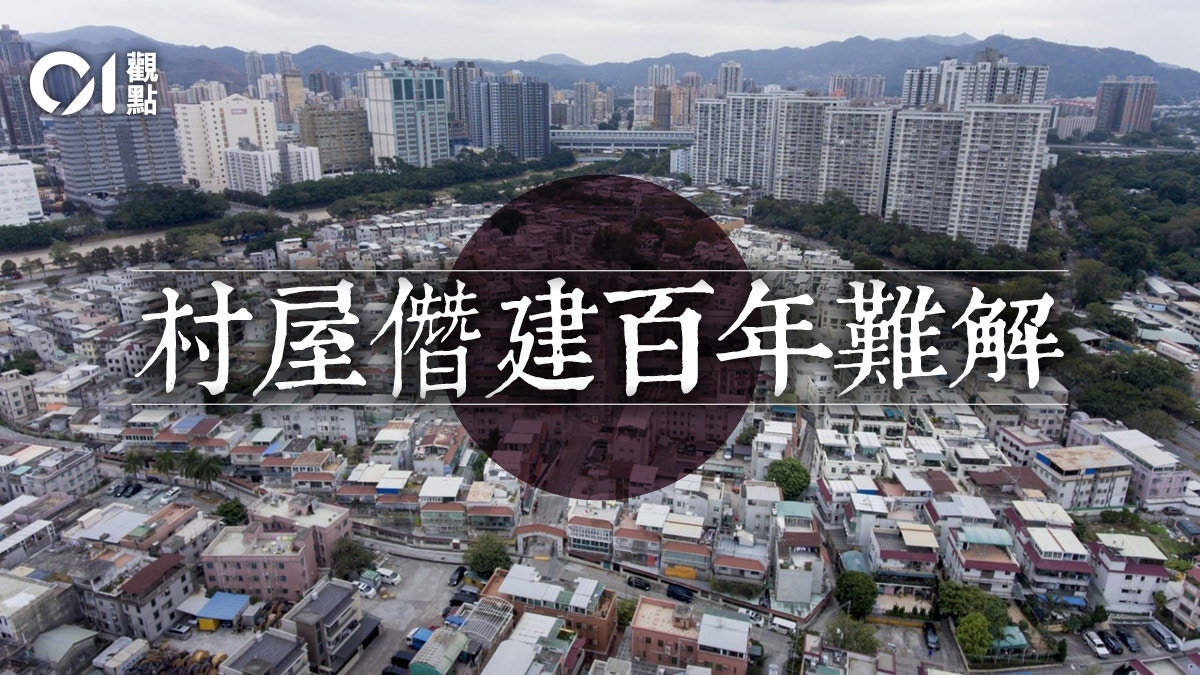01 view
Written by: Commentary Editing Room
2020-10-28 06:30
Last update date: 2020-10-28 06:30
"Apple Daily" reported that the village house of Yang Wei, chief executive of Felicity Group, was suspected of illegal construction, and subsequent inspections by the District Lands Office confirmed the existence of illegal expansion and illegal construction.
Although the authorities have issued a warning letter, this is only the tip of the iceberg. In the final analysis, the Hong Kong government has failed to strictly enforce the law and tolerate traitors for many years, which has caused this kind of "continuous cutting and chaos."
Village houses in the New Territories have repeatedly revealed unauthorized construction and occupation of official land.
(Profile picture)
After Yang Wei was revealed to have illegally rented out sub-divided houses in a Kwun Tong commercial building for profit, he soon became involved in the illegal construction storm again.
His residence on Kam Pok Road in Yuen Long not only has hidden canopies, but also has glass houses, brick houses and other buildings, which have been expanded to nearly 10,000 square feet of "giant mansions", much larger than those with an area of no more than 700 square feet per floor. Three-story village house design.
Even though the District Lands Office has issued a warning letter asking the owners to deal with it after the inspection, it is still difficult to solve the "100-year problem" of illegal construction of village houses.
From 2015 to 2017, the Buildings Department issued an average of about 13,000 removal orders each year, and an average of about 26,000 unauthorized structures were demolished each year. However, it is reported that the Buildings Department has accumulated more than 800,000 unauthorized construction cases. It will take the authorities 100 years to complete the processing of new illegal structures.
What's more, many rural roads belong to private land, and villagers have the right to prevent "outsiders" such as law enforcement or investigators from the authorities from entering the village, greatly increasing the difficulty and time of law enforcement.
Although Chief Executive Carrie Lam Cheng Yuet-ngor previously vowed to strictly enforce the law and ban illegal constructions during her tenure as Director of the Development Bureau, there has been no progress so far.
The Office of The Ombudsman and the Audit Office respectively criticized the authorities’ law enforcement for failing to effectively curb illegal construction of village houses in 2004, 2011, and 2015 respectively. In 2015, they even criticized the Buildings Department’s slow enforcement actions and “significant delays”, but The reality is only in exchange for the authorities to perfuse things in high-sounding Mandarin.
But the controversy over village houses doesn't stop at arrogant construction?
The local research agency's report "Reappearance of New Ding" pointed out that the activities of "spotting" in the past two years have not fallen but increased, and the total number of buildings suspected of "spotting" has exceeded 10,000. Among them, the situation in Yuen Long is the most serious. .
At the same time, the report dismantled the illusion of villagers' "spontaneous settlement", and for the first time it was discovered that offshore companies were suspected of participating in "spotting" to increase the degree of concealment of this illegal activity.
It must be emphasized that illegal construction of village houses has become a "hundred-year problem." Although it is not caused by the SAR government alone, the governance style of not daring to break vested interests will undoubtedly make the problem worse.
At present, many activities involving village houses are no longer for "owner-occupation" purposes. Instead, renting for profit through the "gray area" of the law is one of the contradictions that make social and economic distribution unfair.
As for the small house policy originally intended to improve the living environment of the indigenous residents of the New Territories, it has now evolved into a tool for "making money illegally", which obviously has a value against equality.
In addition to speeding up the pace of the Hong Kong government at this moment to strictly enforce the law, it also has to draw a line in the long run so that the indigenous residents will no longer enjoy the privileges of Ding rights.
Although this kind of change is bound to encounter great resistance, choosing the good and stubborn is what the government deserves.
01 view
[Ding Quan Review Case] The policy deviates from the original intention, the government should reflect on three major lessons
Interpretation of Dingquan Review Case and Rethinking the Unfairness of Small House Policy
[01 Viewpoint] Some local officials in Hong Kong lack vision and determination
[01 Viewpoint] Refusing to cite the land resumption regulations to hand over the development leadership to the real estate party
Fu Lam Unauthorized Construction Lands Office Buildings Department Ding Quan Ding Ding Small House Policy 01 Viewpoint











/cloudfront-eu-central-1.images.arcpublishing.com/prisa/KMEYMJKESBAZBE4MRBAM4TGHIQ.jpg)


